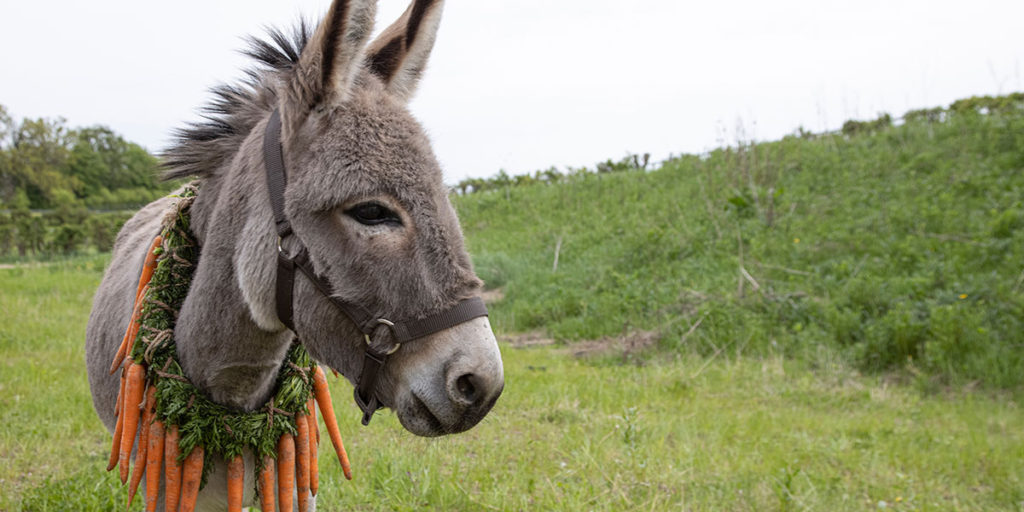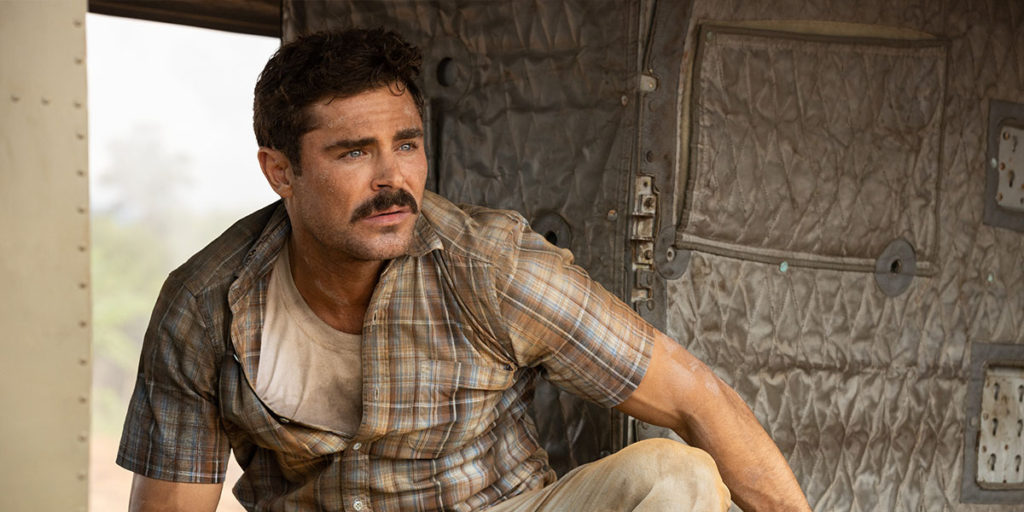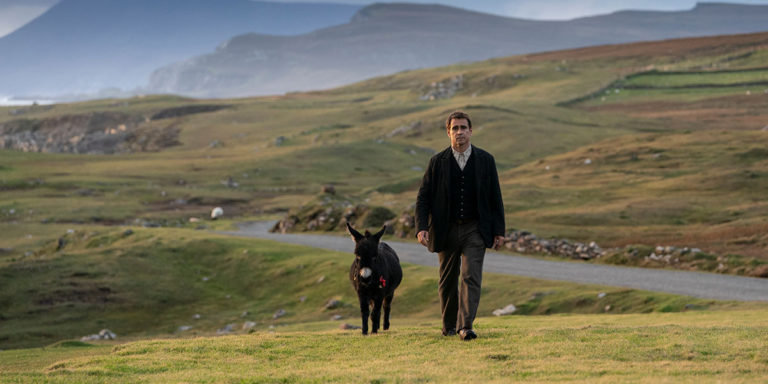The Banshees Of Inisherin (2022 | UK, Ireland | 114 minutes | Martin McDonagh)
Martin McDonagh returns to Ireland with a stirring dark comedy of an abruptly severed friendship on an tiny island of sad boring men. It also reunites his In Bruges stars, with Brendan Gleeson as the bachelor who’s had enough dull conversations for a lifetime and Colin Farrell as the simply devoted pal who just doesn’t know how to take no for an answer. He and his magnificent eyebrows dredge rich pathos from simple niceness, no easy task indeed.
On the fictional island of Inisherin, all emerald farmland fields divided jigsaw-like by low stone walls, Farrell’s Pádraic makes a daily routine of knocking on Colm’s (Gleeson) door for an afternoon pint at the pub. On this day, though, Colm steadfastly refuses to answer his door, entrenched in his dark cottage until his friend gives up and goes it alone. Everyone in the village is shocked to see Pádraic without Colm, even moreso when Colm and his ever-attentive Irish sheepdog arrive, sit outside, and bluntly tell Pádraic that their friendship is over and that he never wants to speak to him again.
The breakup is incomprehensible to Pádraic, a small farmer who lives with his sister Siobhán (Kerry Condon) and his beloved miniature donkey in the house they’ve shared since the death of their parents nearly a decade prior. A look at the calendar the next day brings a spark of relief that Colm’s proclamation may have been a prank, but alas, his friend is very, very serious. Entreaties to bridge the sudden gulf only serve to widen the chasm. Colm so steadfastly wants to focus what remains of his life to pursuits of the mind, composing music, and glancing toward immortality that he’s willing to offer a grim ultimatum to shake loose the familiar bonds of friendship.
Gleeson plays his character with cryptic despair, there are allusions to a history of depression, but the source of new resolve is wisely left largely to the imagination. For his part, Farrell embodies Pádraic with a purity of kindness whose simplicity of outlook is played for laughs without necessarily making him the butt of the joke. There’s a real pain in his sudden isolation that can’t be filled by the companionship of a younger, dimmer, townie (Barry Keoghan, far less an agent of chaos than when they co-starred in The Killing of a Sacred Deer, but no less a mercurial presence) who provides more comic relief to cover a dark backstory. An old woman haunts the island with grim proclamations and entreaties for company of her own; town gossips watch every move; and a violent policeman patrols the streets with a madness for power. It’s 1923 and Across the bay, signs of an ongoing civil war rage on, though no one on Inisherin can seem to remember what it is they’re fighting out.
Three Billboards Outside Ebbing, Missouri infuriated me in the simplicity of its alliances, but Banshees is much less eager to choose sides. The situation and wordplay of McDonagh’s agile script provide constant laughs as counterbalance for what could’ve been a story of funeral insularity. Colm’s methods may border on madness, but his Gleeson sells his motivation convincingly. He’s great, but this is film is all Farrell and he finds rich textures in a befuddled hero on a picturesque island whose dimensions perfectly fit his character’s small ambitions. That we stay on his side as the stakes escalate and he finds a spine of sorts speaks to the miracle of his performance.

EO (2022 | Poland | 86 minutes | Jerzy Skolimowski)
Donkeys were big at TIFF. By coincidence, there was one day in which every movie I saw at the festival had one (no spoilers as to the third). But there was no competition among the three for the Best Donkey on film. That’s an easy call. On a minute-by-minute basis, I have seen no film this year as surprising in framing, construction, and plotting than Jerzy Skolimowski’s truly dazzling film EO. It’s a donkey dreamscape of Malickian proportions, an animal welfare allegory whose humble rapscallion equine goes everywhere and sees everything.
I firmly believe that great art can’t be spoiled, but will avoid attempting to summarize the plot of EO beyond its most basic parameters. As the film opens we meet a brilliantly expressive circus performer who’s parted from his beloved human companion by a well-intentioned new law prohibiting traveling animal exhibitions. Torn from the familiarity of the big top, the donkey becomes our itinerant guide through various landscapes of Poland (and beyond) and of the various lifestyles available to both humans and domesticated animals. Various farms, menacing forests, and life on the road in all of its forms are all captured in a variety of ever more expressive film techniques, in a way that the press materials describe as capturing the anthropomorphic eyes of a “sentient” donkey.
The story is best viewed as an often dark fable, a wide-eyed road picture of extreme serendipity. Scene by scene, the plot seemingly takes ninety-degree turns through multi-dimensional space and I was never not enraptured by its audacity. With eyes softly outlined in white and incredible gravitas the six donkeys playing the title role (Taco, Ola, Marietta, Ettore, Rocco, and Mela) evoke a solemnity of spirit, a penchant for adventure, and a sense of perpetual curiosity. In any other film, a cameo toward the end would have been a jaw-dropper of epic proportions, but after the exploits I’d shared with that noble donkey it barely registered. By some miracle, TIFF showed EO in on a giant IMAX screen (even though it had not been filmed or enhanced as such). If an opportunity to see it in such an immersive environment ever presents itself to you, I beg you to treat yourself to it and share EO’s journey through the best and worst the world has to offer with an open mind and a full heart.

The Greatest Beer Run Ever (2022 | USA | 126 minutes | Peter Farrelly) – World Premiere
My final film of the festival was a morning screening before heading to a long day of waiting at the Toronto airport. Despite my entreaties above, I perhaps didn’t bring the most welcoming spirit to The Greatest Beer Run Ever. In his follow-up to (ugh) Oscar-winning Green Book, Peter Farrelly teams with Zach Efron’s moustache to present the tale of an idiot sneaking into Vietnam with a dufflebag of warm American beers for the troops, somehow surviving a chaotic war zone, and learning important lessons via the entirely unearned goodwill of others. It’s a story so dumb it had to be true!
Efron’s about a decade too old for the role of “Chickie” Donohue, a merchant marine who still crashes on his childhood single bed in his parents’ house when he’s between assignments on the high seas. It’s 1967 and in his small New York City neighborhood, the view of the War is clear: support the troops, revile the media, and suppress any discussion of the complexities of the conflict. Bill Murray plays the prickly bartender at the local tavern, and any customer who doesn’t blindly support the patriotic men serving our great nation can get the hell out. Bemoaning the nightly news reports and peaceniks in the park calling for an end to the conflict that was decimating a generation of draftees, the guys wonder what they could possibly do to let the troops know the people back home still care.
A drunken Chickie suggests that since he’s a merchant marine, it shouldn’t be too hard to get to Vietnam and personally deliver beers to the guys from the neighborhood deployed there. The idea snowballs, families foolishly give him trinkets to bring over to the war zone, and he stumbles onto a ship that’s a few hours from departure yet hasn’t yet hired an engineer with Donohue’s qualifications. Like Green Book, it’s a film shot and executed with mid-century attitudes and techniques. It looks and feels like one of those movies that a certain branch of the Academy complains that Hollywood just doesn’t make anymore.
I’m sure that a lot of people will like this just fine. Even at a decade too old for the role, Efron brings his sparkling-eyed charisma and appealing screen presence to an earnest role. The true nature of the story, so as Chickie stumbles into dangerous situations, plays on false assumptions, and gets people like a grizzled correspondent played by Russell Crowe to look after him, this errand of carting warm beers around the countryside (in a place that no one in the neighborhood seemed to have thought would have cold adult beverages), it takes the dictum of truth being stranger than fiction as an excuse to avoid a more nuanced interrogation of the adventure. At its core, Farrelly is again bringing another story of a privileged man who can only learn the error of his assumptions and appreciate the existence of complexity via easily-won direct experience where the weight of pain and suffering is still borne by others (rather than listening to a younger woman who’s actually thought about the issue). The type of stubborn education of the well-meaning is an unfortunate reality that’s long plagued our republic, but I still found it more infuriating than uplifting.
The Banshees Of Inisherin (Searchlight), EO and The Greatest Beer Run Ever (AppleTV+) had their world and North American premieres at the Toronto International Film Festival; both are scheduled for release later this year. Images courtesy TIFF.



